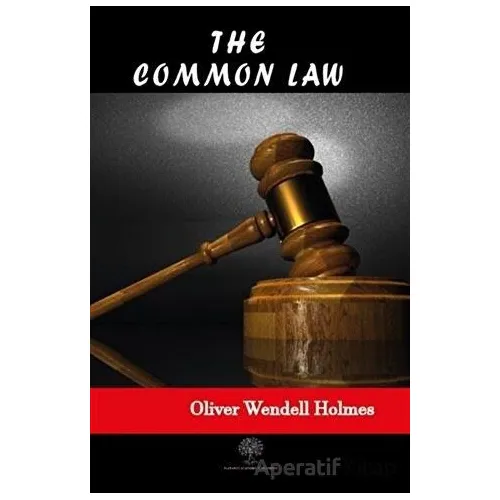The Common Law - Oliver Wendell Holmes Jr. - Platanus Publishing
Hiç mesaj bulunmadı
| Taksit | Tutar | Toplam |
|---|---|---|
| Tek Çekim | 378.00 TL | 378.00 TL |
| 2 Taksit | 189.00 TL | 378.00 TL |
| 3 Taksit | 131.04 TL | 393.12 TL |
| 4 Taksit | 99.23 TL | 396.90 TL |
| 5 Taksit | 80.14 TL | 400.68 TL |
| 6 Taksit | 67.41 TL | 404.46 TL |
| Ödeme Türü | Toplam Tutar |
|---|---|
| Diğer Kredi Kartları | 378.00 TL |
| Havale / Eft | 378.00 TL |
| Posta Çeki | 378.00 TL |
| Kapıda Ödeme | 393.00 TL |
Kapıda ödemeli siparişlerde +15,00TL kapıda ödeme hizmet bedeli ilave edilir. | |
- Vade farksız taksitler KOYU renkte gösterilmektedir.
- X+X şeklinde belritilen taksitler (Örneğin: 2+3) 2 taksit olarak işleme alınmakta ancak ilgili bankanın kampanyası dahilinde 2 taksit üzerinden işlem yapıldığı halde 2+3 yani 5 taksit olarak kartınıza ve ödemenize yansımaktadır. (2 taksit seçilmiş olsa bile banka kampanyası dahilinde ekstradan vade farkı eklenmeden işlem 5 taksite bölünmektedir.)
The Common Law - Oliver Wendell Holmes Jr. - Platanus Publishing
“A very common phenomenon, and one very familiar to the student of history, is this. The customs, beliefs, or needs of a primitive time establish a rule or a formula. In the course of centuries the custom, belief, or necessity disappears, but the rule remains. The reason which gave rise to the rule has been forgotten, and ingenious minds set themselves to inquire how it is to be accounted for. Some ground of policy is thought of, which seems to explain it and to reconcile it with the present state of things; and then the rule adapts itself to the new reasons which have been found for it, and enters on a new career. The old form receives a new content, and in time even the form modifies itself to fit the meaning which it has received. The subject under consideration illustrates this course of events very clearly.”











